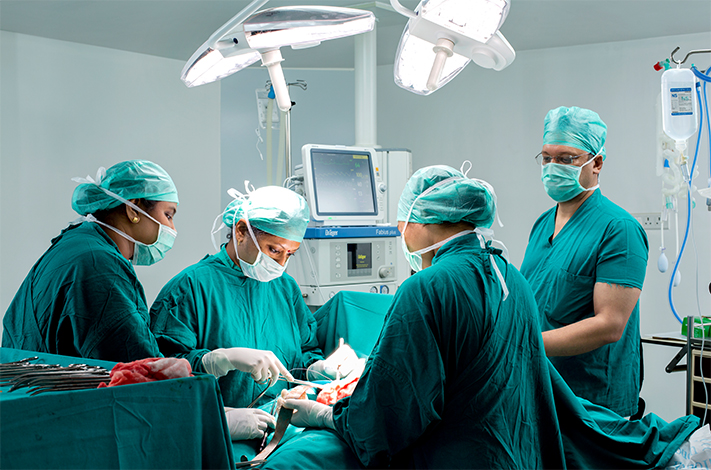
General surgery is a medical specialty focused on performing surgical procedures to treat a wide range of diseases and conditions. General surgeons are trained to operate on many areas of the body, including the digestive system, abdomen, skin, soft tissues, and sometimes even the endocrine system. They are often involved in both emergency surgeries and elective (planned) procedures.
Key Aspects of General Surgery:
1. Surgical Procedures: General surgeons perform operations to remove diseased tissues or organs, repair injuries, correct deformities, and improve patient function. Common procedures include appendectomies, hernia repairs, gallbladder removal, and biopsies.
2. Preoperative and Postoperative Care: General surgeons are responsible for the overall management of surgical patients before, during, and after surgery. This includes preoperative assessments, the surgical procedure itself, and postoperative care to ensure recovery and manage any complications.
3. Emergency Surgery: General surgeons are often involved in emergency situations, such as trauma cases (e.g., car accidents, gunshot wounds) or acute conditions like appendicitis or bowel obstructions, where immediate surgical intervention is required.
4. Laparoscopic Surgery: Many general surgeons are skilled in minimally invasive techniques, such as laparoscopy. This involves using small incisions and specialized instruments to perform surgeries, which typically result in less pain, shorter hospital stays, and quicker recovery times.
5. Wide Range of Conditions: General surgeons treat a broad spectrum of conditions, including those affecting the gastrointestinal tract (e.g., stomach, intestines, colon), endocrine system (e.g., thyroid), and soft tissues (e.g., skin lesions, cysts).
6. Collaboration with Specialists: General surgeons often collaborate with other specialists, such as oncologists, gastroenterologists, and anesthesiologists, to provide comprehensive care. For example, they may perform surgery as part of cancer treatment or work with a gastroenterologist on digestive system disorders.
Common Procedures in General Surgery:
– Appendectomy: Removal of the appendix, often due to appendicitis.
– Cholecystectomy: Removal of the gallbladder, commonly performed for gallstones.
– Hernia Repair: Surgical correction of hernias, where an organ or tissue protrudes through a weak spot in the abdominal wall.
– Colon Surgery: Procedures on the colon, such as resection for cancer or diverticulitis.
– Mastectomy: Removal of one or both breasts, often due to breast cancer.
– Thyroidectomy: Removal of the thyroid gland, typically for conditions like cancer, hyperthyroidism, or goiter.
– Biopsies: Removal of tissue samples for diagnostic purposes.
Areas of Focus in General Surgery:
– Gastrointestinal Surgery: Involving the stomach, intestines, and other parts of the digestive system.
– Breast Surgery: Including procedures for benign and malignant breast conditions.
– Endocrine Surgery: Such as thyroid and adrenal gland surgery.
– Trauma Surgery: Addressing injuries from accidents or violence.
– Oncologic Surgery: Removal of tumors and cancerous tissues.
General surgeons play a vital role in healthcare, performing life-saving operations and contributing to the overall management of patients with surgical needs. Their broad skill set allows them to address a wide array of medical conditions, making them essential to both emergency and routine healthcare.
